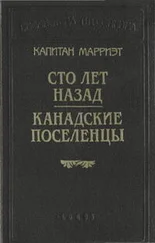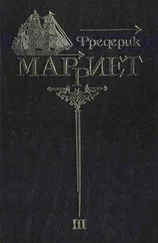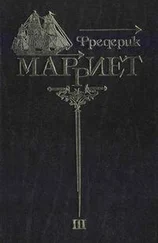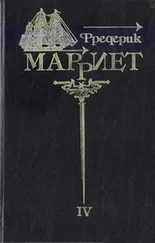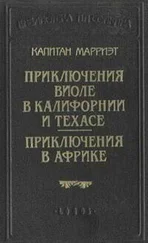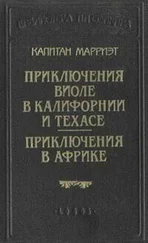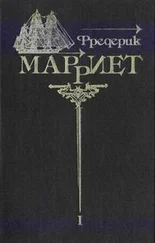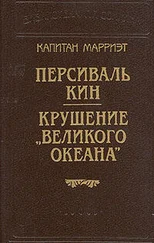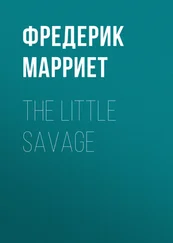Фредерик Марриет - Jacob Faithful
Здесь есть возможность читать онлайн «Фредерик Марриет - Jacob Faithful» — ознакомительный отрывок электронной книги совершенно бесплатно, а после прочтения отрывка купить полную версию. В некоторых случаях можно слушать аудио, скачать через торрент в формате fb2 и присутствует краткое содержание. Жанр: prose_military, literature_19, foreign_antique, foreign_prose, на английском языке. Описание произведения, (предисловие) а так же отзывы посетителей доступны на портале библиотеки ЛибКат.
- Название:Jacob Faithful
- Автор:
- Жанр:
- Год:неизвестен
- ISBN:нет данных
- Рейтинг книги:4 / 5. Голосов: 1
-
Избранное:Добавить в избранное
- Отзывы:
-
Ваша оценка:
- 80
- 1
- 2
- 3
- 4
- 5
Jacob Faithful: краткое содержание, описание и аннотация
Предлагаем к чтению аннотацию, описание, краткое содержание или предисловие (зависит от того, что написал сам автор книги «Jacob Faithful»). Если вы не нашли необходимую информацию о книге — напишите в комментариях, мы постараемся отыскать её.
Jacob Faithful — читать онлайн ознакомительный отрывок
Ниже представлен текст книги, разбитый по страницам. Система сохранения места последней прочитанной страницы, позволяет с удобством читать онлайн бесплатно книгу «Jacob Faithful», без необходимости каждый раз заново искать на чём Вы остановились. Поставьте закладку, и сможете в любой момент перейти на страницу, на которой закончили чтение.
Интервал:
Закладка:
“Why, what can have become of Joe?” cried my mother, with maternal alarm in her countenance, appealing to my father, as she hastened back to the cabin. My father spoke not, but taking the pipe out of his mouth, dropped the bowl of it in a perpendicular direction till it landed softly on the deck, then put it into his mouth again, and puffed mournfully. “Why, you don’t mean to say he is overboard?” screamed my mother.
My father nodded his head, and puffed away at an accumulated rate. A torrent of tears, exclamations, and revilings succeeded to this characteristic announcement. My father allowed my mother to exhaust herself. By the time when she had finished, so was his pipe; he then knocked out the ashes, and quietly observed, “It’s no use crying; what’s done can’t be helped,” and proceeded to refill the bowl.
“Can’t be helped!” cried my mother; “but it might have been helped.”
“Take it coolly,” replied my father.
“Take it coolly!” replied my mother in a rage—“take it coolly! Yes, you’re for taking everything coolly: I presume, if I fell overboard you would be taking it coolly.”
“You would be taking it coolly, at all events,” replied my imperturbable father.
“O dear! O dear!” cried my poor mother; “two poor children, and lost them both!”
“Better luck next time,” rejoined my father; “so, Sall, say no more about it.”
My father continued for some time to smoke his pipe, and my mother to pipe her eye, until at last my father, who was really a kind-hearted man, rose from the chest upon which he was seated, went to the cupboard, poured out a teacupful of gin , and handed it to my mother. It was kindly done of him, and my mother was to be won by kindness. It was a pure offering in the spirit, and taken in the spirit in which it was offered. After a few repetitions, which were rendered necessary from its potency being diluted with her tears, grief and recollection were drowned together, and disappeared like two lovers who sink down entwined in each other’s arms.
With this beautiful metaphor, I shall wind up the episode of my unfortunate brother Joe.
It was about a year after the loss of my brother that I was ushered into the world, without any other assistants or spectators than my father and Dame Nature, who I believe to be a very clever midwife if not interfered with. My father, who had some faint ideas of Christianity, performed the baptismal rites by crossing me on the forehead with the end of his pipe, and calling me Jacob: as for my mother being churched, she had never been but once to church in her life. In fact, my father and mother never quitted the lighter, unless when the former was called out by the superintendent or proprietor, at the delivery or shipment of a cargo, or was once a month for a few minutes on shore to purchase necessaries. I cannot recall much of my infancy; but I recollect that the lighter was often very brilliant with blue and red paint, and that my mother used to point it out to me as “so pretty,” to keep me quiet. I shall therefore pass it over, and commence at the age of five years, at which early period I was of some little use to my father. Indeed I was almost as forward as some boys at ten. This may appear strange; but the fact is, that my ideas although bounded, were concentrated. The lighter, its equipments, and its destination were the microcosm of my infant imagination; and my ideas and thoughts being directed to so few objects, these objects were deeply impressed, and their value fully understood. Up to the time that I quitted the lighter, at eleven years old, the banks of the river were the boundaries of my speculations. I certainly comprehended something of the nature of trees and houses; but I do not think that I was aware that the former grew . From the time that I could recollect them on the banks of the river, they appeared to be exactly of the same size as they were when first I saw them, and I asked no questions. But by the time that I was ten years old, I knew the name of the reach of the river, and every point—the depth of water, and the shallows, the drift of the current, and the ebb and flow of the tide itself. I was able to manage the lighter as it floated down with the tide; for what I lacked in strength I made up with dexterity arising from constant practice.
It was at the age of eleven years that a catastrophe took place which changed my prospects in life, and I must, therefore, say a little more about my father and mother, bringing up their history to that period. The propensity of my mother to ardent spirits had, as always is the case, greatly increased upon her, and her corpulence had increased in the same ratio. She was now a most unwieldy, bloated mountain of flesh, such a form as I have never since beheld, although, at the time, she did not appear to me to be disgusting, accustomed to witness imperceptibly her increase, and not seeing any other females, except at a distance. For the last two years she had seldom quitted her bed—certainly she did not crawl out of the cabin more than five minutes during the week—indeed, her obesity and habitual intoxication rendered her incapable. My father went on shore for a quarter of an hour once a month, to purchase gin, tobacco, red herrings, and decayed ship-biscuits;—the latter was my principal fare, except when I could catch a fish over the sides, as we lay at anchor. I was, therefore, a great water-drinker, not altogether from choice, but from the salt nature of my food, and because my mother had still sense enough left to discern that “Gin wasn’t good for little boys.” But a great change had taken place in my father. I was now left almost altogether in charge of the deck, my father seldom coming up except to assist me in shooting the bridges, or when it required more than my exertions to steer clear of the crowds of vessels which we encountered when between them. In fact, as I grew more capable, my father became more incapable, and passed most of his time in the cabin, assisting my mother in emptying the great stone bottle. The woman had prevailed upon the man, and now both were guilty in partaking of the forbidden fruit of the Juniper Tree. Such was the state of affairs in our little kingdom when the catastrophe occurred which I am now about to relate.
One fine summer’s evening we were floating up with the tide, deeply laden with coals, to be delivered at the proprietor’s wharf, some distance above Putney Bridge; a strong breeze sprang up and checked our progress, and we could not, as we expected, gain the wharf that night. We were about a mile and a half above the bridge when the tide turned against us, and we dropped our anchor. My father who, expecting to arrive that evening, had very unwillingly remained sober, waiting until the lighter had swung to the stream, and then saying to me, “Remember, Jacob, we must be at the wharf early tomorrow morning, so keep alive,” went into the cabin to indulge in his potations, leaving me in possession of the deck, and also of my supper, which I never ate below, the little cabin being so unpleasantly close. Indeed, I took all my meals al fresco , and, unless the nights were intensely cold, slept on deck, in the capacious dog-kennel abaft, which had once been tenanted by the large mastiff; but he had been dead some years, was thrown overboard, and, in all probability, had been converted into savoury sausages at 1 shilling per pound weight. Some time after his decease, I had taken possession of his apartment and had performed his duty. I had finished my supper, which was washed down with a considerable portion of Thames water, for I always drank more when above the bridges, having an idea that it tasted more pure and fresh. I had walked forward and looked at the cable to see if all was right, and then, having nothing more to do, I lay down on the deck, and indulged in the profound speculations of a boy of eleven years old. I was watching the stars above me, which twinkled faintly, and appeared to me ever and anon to be extinguished and then relighted. I was wondering what they could be made of, and how they came there, when of a sudden I was interrupted in my reveries by a loud shriek, and perceived a strong smell of something burning. The shrieks were renewed again and again, and I had hardly time to get upon my legs when my father burst up from the cabin, rushed over the side of the lighter, and disappeared under the water. I caught a glimpse of his features as he passed me, and observed fright and intoxication blended together. I ran to the side where he had disappeared, but could see nothing but a few eddying circles as the tide rushed quickly past. For a few seconds I remained staggered and stupefied at his sudden disappearance and evident death, but I was recalled to recollection by the smoke which encompassed me, and the shrieks of my mother, which were now fainter and fainter, and I hastened to her assistance.
Читать дальшеИнтервал:
Закладка:
Похожие книги на «Jacob Faithful»
Представляем Вашему вниманию похожие книги на «Jacob Faithful» списком для выбора. Мы отобрали схожую по названию и смыслу литературу в надежде предоставить читателям больше вариантов отыскать новые, интересные, ещё непрочитанные произведения.
Обсуждение, отзывы о книге «Jacob Faithful» и просто собственные мнения читателей. Оставьте ваши комментарии, напишите, что Вы думаете о произведении, его смысле или главных героях. Укажите что конкретно понравилось, а что нет, и почему Вы так считаете.

